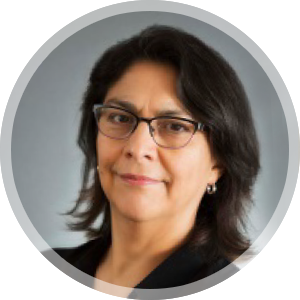The mhealth or mobile health market, with currently more than 350,000 downloadable apps, plus wearables and digital medical consultations via chat or video, is still growing exponentially: GlobalData reports the RPM market to be valued at $585.5 million in 2022 and growing to $760 million in 2030. Additionally, as technology advances and hospitals integrate more software, they expect to see growth in software as a medical device (SaMDs) in remote patient monitoring (RPM) and other healthcare sectors.The Covid-19 pandemic accelerated the need for tools and technology that empowers this rapid growth in telehealth. Mobile app developers worldwide have stepped up to meet the challenge. As a result, many people now find themselves monitoring their health, which also provides precious data for healthcare providers (HCPs) and supports breakthrough studies to be performed. But with a lot of obvious benefits on all levels come new constraints, especially in a regulated environment. The more patients and clinicians use health applications, the more their expectations rise. To stay ahead of your competition, this is something to keep in mind.
And the fast technical evolution over the last 2 years isn’t the only challenge digital health providers are facing. When health apps are registered as medical devices, they must meet the different requirements and regulations of each country or region. This affects the documentation for each market – always in the respective language – as well as the app content translation and adaptation (localization) of the user interface.
Agile software development in a regulated environment
Most medical device manufacturers follow standard agile development practices to get the app to market quickly and efficiently. Such processes often don’t lend themselves well to a highly regulated environment: All releases must be reviewed and approved by various stakeholders – such as Quality, Regulatory, and even local companies. Careful planning of release cycles and their impacts is required, and changes must be tracked and assessed to determine whether a resubmission to the health authorities will be required for approval.
Legal and privacy policies for medical device manufacturers
In addition to the challenges of agile development in a regulated environment, each country or region – such as the EU – issues binding policies governing legal and privacy issues. This can easily become unmanageable if left to different local company divisions to follow through. As these policies are evolving along with developments in technology and with increasing privacy concerns, compliance with all legal and privacy requirements becomes even more challenging. Long lead times for each product launch can be the result, jeopardizing the gains achieved through an agile development process.
International medical device regulators
A voluntary group of regulators from around the world has formed the International Medical Device Regulators Forum to address the harmonization of software as a medical device regulation. This may mitigate some challenges in mobile app development – but as technology and innovation continue to evolve, such guidelines currently create even more change around regulatory requirements.
Translating digital health apps calls for specific best practices
Here are the essential five app translation best practices for medical device manufacturers, based on Acolad’s extensive experience in mobile app localization for the life sciences industry:
1. Use software localization tools
The right content and language service partner needs to provide app localization tools that:
- Work well in an agile development environment
- Respond immediately to any change
- Provide traceability on all change requests
- Deploy automated workflows
- Integrate with computer-aided translation technology, including machine translation
- Seamlessly connect to standard R&D tools such as Bitbucket
The result: Streamlined processes, faster turnaround time, transparency and tracking of all changes – without any risk to quality and consistency.
2. Centralize legal and privacy content
Centralizing legal and privacy content for each country or region provides more control of these particularly important requirements. At Acolad, we combine content for different systems, such as iOS and Android, into a single version for HCP and patients, centralizing handling and traceability in a content management system. This allows easy management of updates and leverage of policies for the creation of new app content.
3. Optimize your review management
Reviews across departments and stakeholders can be complex and time-consuming. Acolad has streamlined these processes by taking review cycles across stakeholders out of the product development timeline. In some cases, full product release reviews can be replaced by regular annual or biannual reviews.
4. Adopt a systematic approach to change management
Change management is critical in a highly regulated environment such as mobile health software localization. Without clear and traceable changes, the efficiencies achieved in an agile process can be easily lost.
Simple updates that don’t impact claims or regulated content such as registration numbers and support information can be tracked, updated, and managed separately, not requiring full reviews or re-submission for health authority approval.
More impactful changes should be managed in a more controlled process, allowing for a full review of these segments without impacting unaltered parts of the software. These change management practices can have a massive impact on timelines!
5. Follow certified quality processes
A final important note on quality and efficiency in a regulated environment: Make sure your translation partner is compliant with the strictest ISO standards! ISO certification (ISO 9001:2015 and ISO 13485:2016) is a must-have requirement to ensure quality standards are being met throughout. As a global content services provider specializing in the life sciences and healthcare industries, Acolad holds these and other certifications. With a dedicated ecosystem of translation processes and tools tailored to the Life Sciences industry, Acolad can easily respond to the evolving regulatory requirements of medical device manufacturers and health app developers.
A mobile health app localization success story
Acolad helped renowned Life Sciences provider LifeScan with the numerous intricacies involved in internationalization and localization in the digital sphere. We streamlined the localization and content management processes to help LifeScan successfully launch its "OneTouch" diabetes app in 26 different countries. The result: $1.4M in savings since the implementation of the mobile health app!

